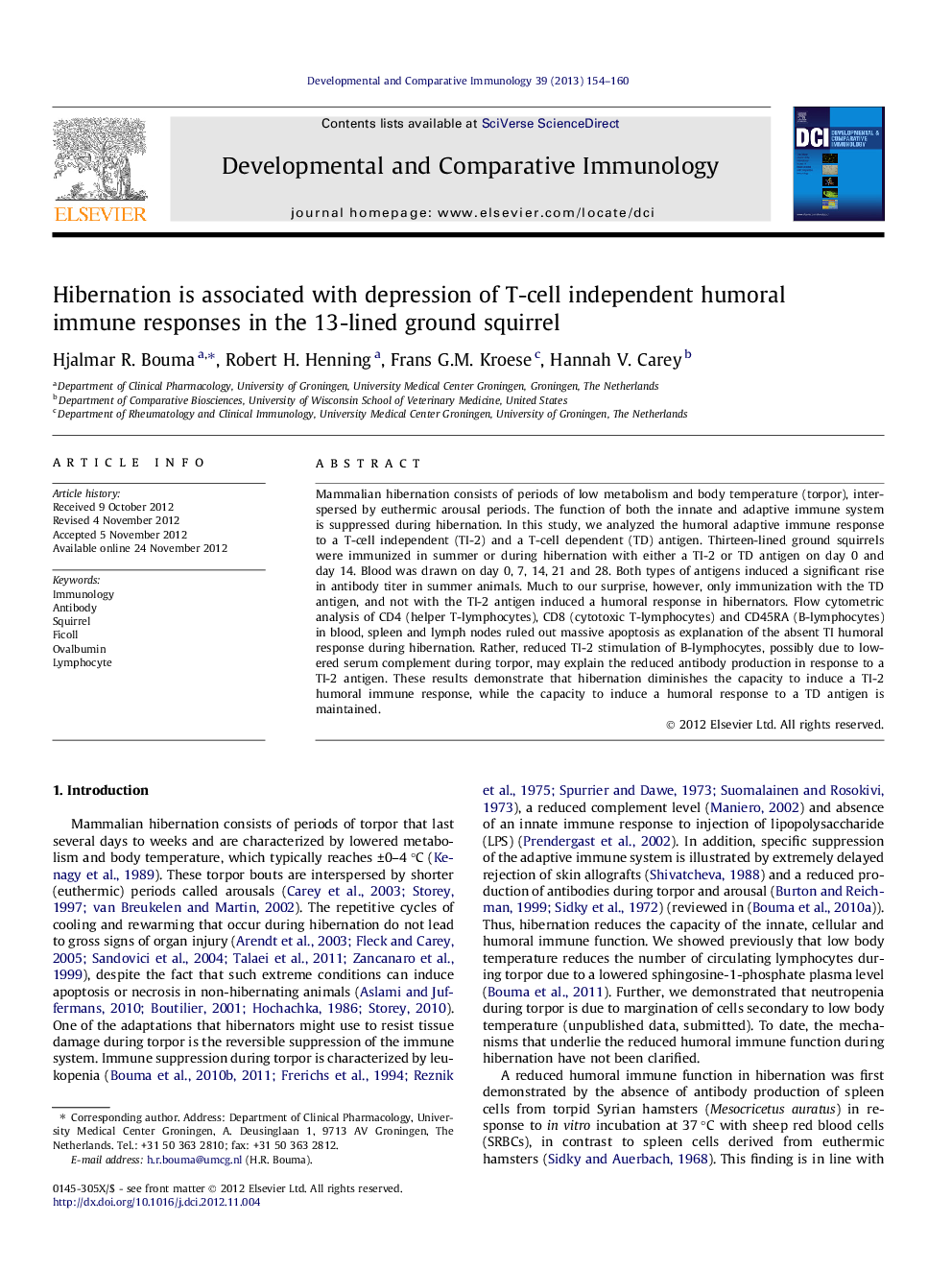| Article ID | Journal | Published Year | Pages | File Type |
|---|---|---|---|---|
| 2429327 | Developmental & Comparative Immunology | 2013 | 7 Pages |
Mammalian hibernation consists of periods of low metabolism and body temperature (torpor), interspersed by euthermic arousal periods. The function of both the innate and adaptive immune system is suppressed during hibernation. In this study, we analyzed the humoral adaptive immune response to a T-cell independent (TI-2) and a T-cell dependent (TD) antigen. Thirteen-lined ground squirrels were immunized in summer or during hibernation with either a TI-2 or TD antigen on day 0 and day 14. Blood was drawn on day 0, 7, 14, 21 and 28. Both types of antigens induced a significant rise in antibody titer in summer animals. Much to our surprise, however, only immunization with the TD antigen, and not with the TI-2 antigen induced a humoral response in hibernators. Flow cytometric analysis of CD4 (helper T-lymphocytes), CD8 (cytotoxic T-lymphocytes) and CD45RA (B-lymphocytes) in blood, spleen and lymph nodes ruled out massive apoptosis as explanation of the absent TI humoral response during hibernation. Rather, reduced TI-2 stimulation of B-lymphocytes, possibly due to lowered serum complement during torpor, may explain the reduced antibody production in response to a TI-2 antigen. These results demonstrate that hibernation diminishes the capacity to induce a TI-2 humoral immune response, while the capacity to induce a humoral response to a TD antigen is maintained.
► The capacity to induce a humoral response to a TD antigen is maintained throughout hibernation. ► Immunization with a TI-2 antigen does not induce a humoral response in hibernators. ► No significant changes occur in the numbers of CD4+, CD8+ and CD45RA+ in blood, lymph nodes and spleen during hibernation. ► Reduced TI-2 stimulation of B-lymphocytes may result from lowered serum complement during torpor.
